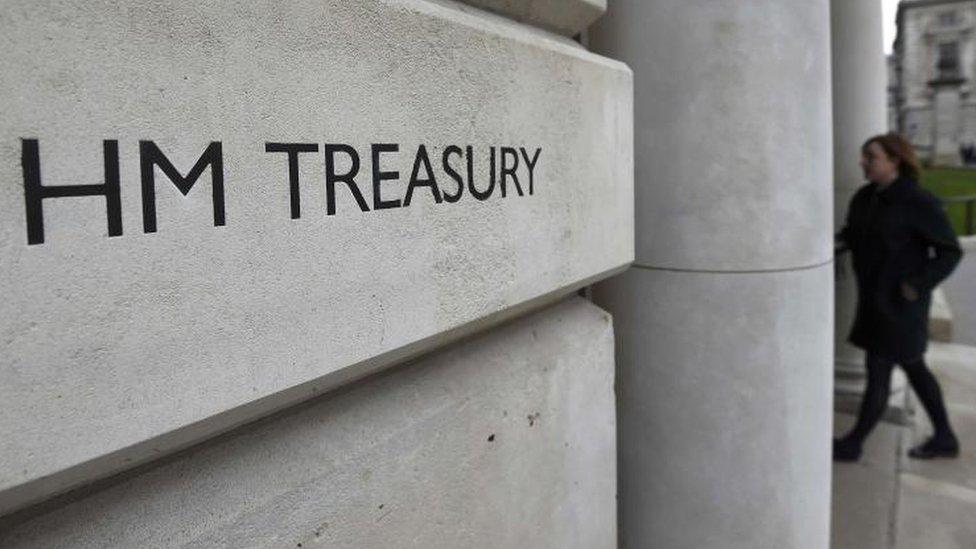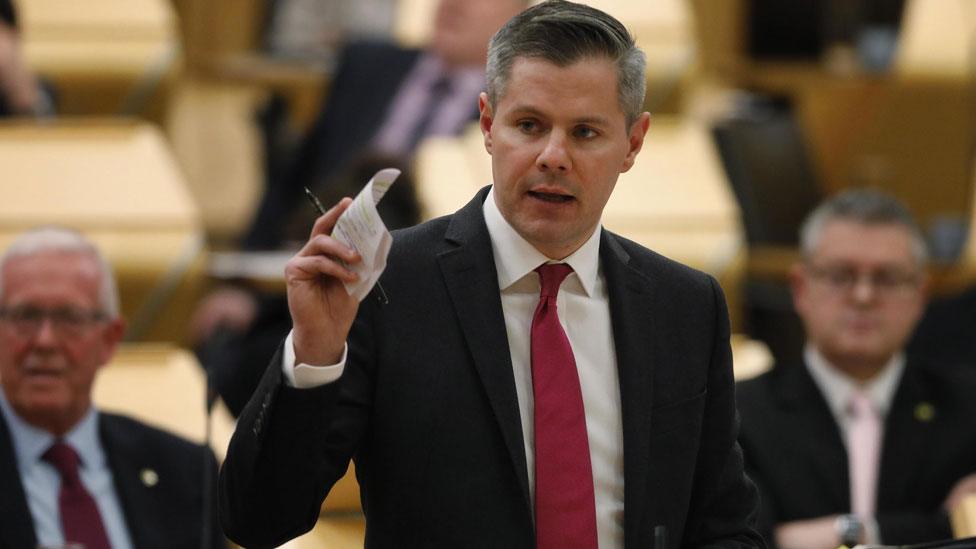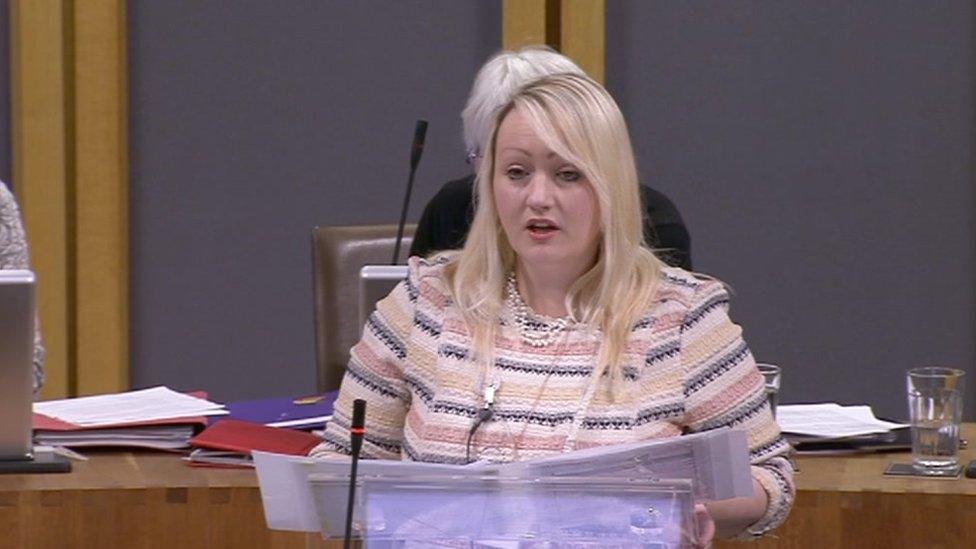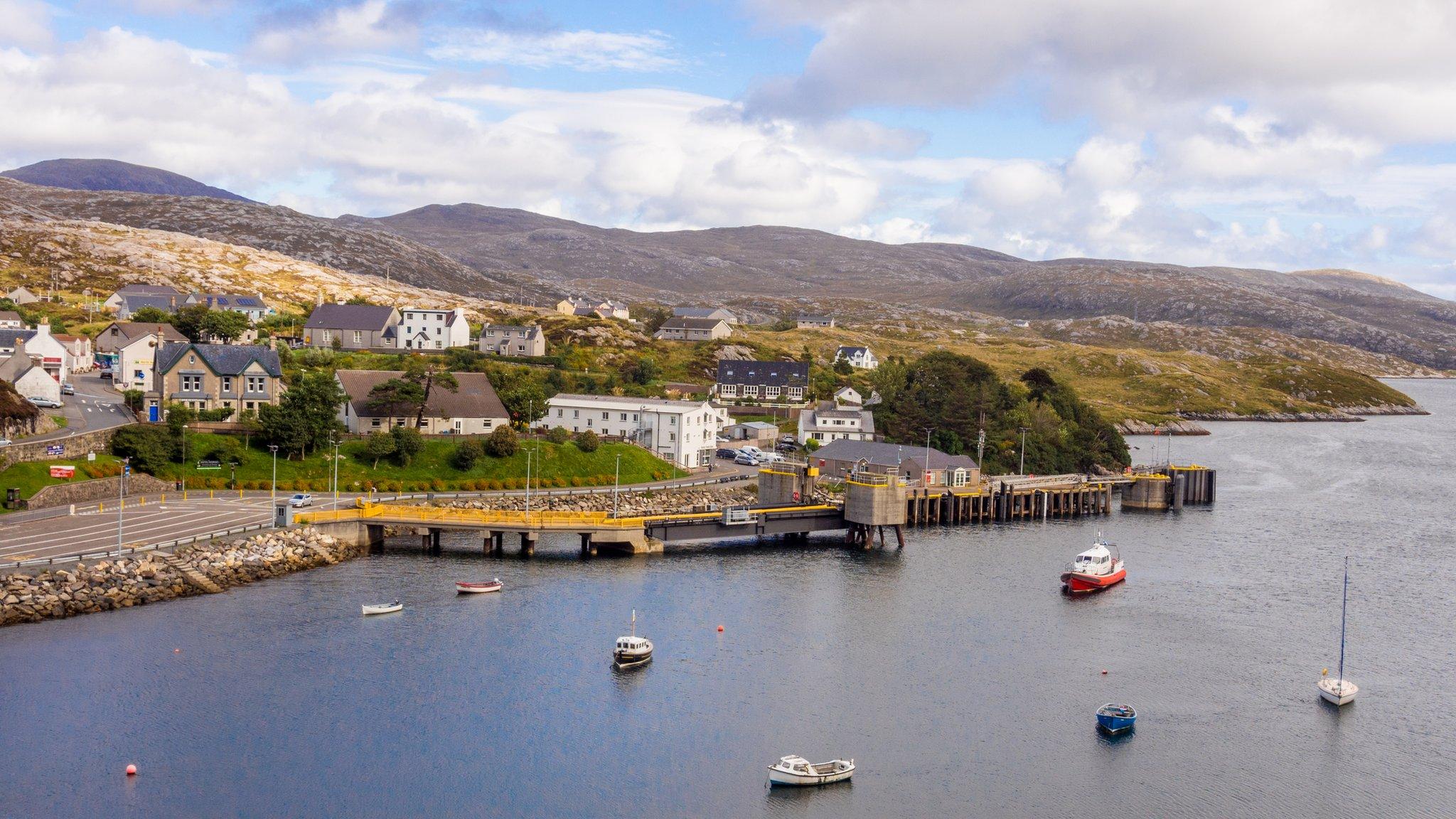Scots and Welsh ministers quiz Treasury on post-Brexit cash
- Published
- comments

Ministers from Scotland and Wales are demanding clarity on where vital funding will come from after Brexit.
Scotland's Finance Secretary Derek Mackay and Welsh Finance Minister Rebecca Evans have asked the UK government to explain replacements for EU cash streams post-Brexit.
These include university research grants, rural community funding and public sector pensions.
The two will later meet Chief Secretary to the Treasury Liz Truss in Cardiff.
The Federation of Small Business has stressed the need to avoid no-deal Brexit and to have in place replacement arrangements for EU grants to make sure neither nation is disadvantaged as a result of Brexit.

Derek Mackay says cash from EU sources sustains rural communities and important university research projects
Mr Mackay said: "Today's meeting is an opportunity for the UK government to provide much needed clarity around future funding as well as details on what support will be made available to help protect Scotland's economy against the consequences of the UK's exit from the European Union.
"Funding from the EU supports jobs in Scotland, from major infrastructure projects to sustaining rural communities and delivering research funding for our world-class universities. That is why the Scottish government is determined to defend its hard-won fiscal responsibility and maintain the benefits that EU funding has provided to many sectors and individuals in Scotland.
"With just weeks to go until the planned EU exit day, we remain deeply concerned about the lack of detail regarding replacement arrangements for EU funding streams given their importance to individuals, businesses and communities across Scotland."
Mr Mackay will ask Ms Truss to provide reassurance Scotland should not be financially worse off as a result of EU exit and to guarantee that all lost EU funding will be replaced in full.
He said that Brexit uncertainty was already impacting key economic indicators and a no-deal Brexit would lead to a major dislocation to the Scottish economy.
He also said the UK government "must immediately rule out the possibility of a 'no deal' Brexit and extend the Article 50 process".
But he added that as a responsible government, they would intensify work to prepare for all outcomes.

Rebecca Evans is concerned about public sector pensions
Welsh Finance Minister Rebecca Evans said she would also push the UK administration for clarity about budgets.
She said "With the clock ticking as we approach EU exit day, it is absolutely vital we are at the heart of decision making and are able to prepare for the impact of Brexit.
"Alongside this, I will also be pressing for further clarity and assurances about the cost associated with the UK government's changes to public sector pensions and how it intends to fund it.
"Only last week, the First Minister and local government leaders wrote to the Chancellor seeking clarification. Worryingly, even as local authorities are finalising their budgets, there is still some uncertainty about funding."
'Abrupt change'
Colin Borland, director of devolved nations for the Federation of Small Business, said: "Avoiding a no-deal Brexit at the end of March is the highest priority for smaller businesses. Elected members at every level need to push hard to avoid this outcome.
"But we would encourage local businesses from Aberystwyth to Aberdeen to check out official sources of advice to ensure they're as prepared as they can be for what could be an abrupt change in trading conditions."
A Treasury spokeswoman told the BBC: "We are working closely with the devolved administrations so they have the resources to prepare as we leave the European Union.
"This includes allocating £55m to the Scottish government and over £30m to the Welsh government to support Brexit preparations for all scenarios in 2019-20."
- Published9 January 2019

- Published4 January 2019
